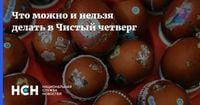As the Christian community prepares for Easter, Clean Thursday, occurring on April 17, 2025, stands out as a day of significant spiritual and practical importance. This day, observed three days before Easter, is steeped in tradition and ritual, embodying the themes of cleansing and renewal.
According to biblical tradition, Clean Thursday commemorates the Last Supper, where Jesus gathered his apostles before his crucifixion. This pivotal event is marked by Jesus washing the feet of his disciples, symbolizing humility and service. It is also during this meal that he foretold the betrayal by Judas Iscariot, who would sell him for thirty pieces of silver. Thus, Clean Thursday is not just a day of preparation but one of reflection on the sacrifices made by Jesus.
On this day, believers engage in several practices aimed at purifying both body and soul. One of the central traditions is the performance of ablutions before sunrise, using water that has been blessed or infused with silver, believed to have healing properties. This ritual cleansing is intended to rid oneself of impurities and prepare for the solemnity of the Easter celebrations ahead.
In addition to personal cleanliness, the day is marked by thorough cleaning of homes. It is customary for families to tidy their living spaces, ensuring that everything is in order before the Easter festivities begin. As the saying goes, "If you don’t clean your house on Clean Thursday, the year will be filled with quarrels and disputes with relatives." This belief underscores the importance of starting the year anew, free from negativity and clutter.
Moreover, Clean Thursday is associated with specific prohibitions that believers are encouraged to follow. It is considered inappropriate to engage in laziness, as this is thought to attract illness. Additionally, avoiding conflicts, angry words, and even negative thoughts is emphasized. The act of gossiping or harboring resentment is discouraged, as it contradicts the spirit of love and forgiveness that Jesus preached.
Another significant aspect of Clean Thursday is the preparation of traditional Easter foods, particularly the baking of kulich, a special Easter cake. The dough is typically prepared in the morning, and the quality of the kulich is believed to predict the fortunes of the year ahead. A well-baked, fluffy kulich symbolizes happiness and prosperity, while a poorly baked one signals potential difficulties.
In line with the preparations, believers are also advised to avoid lending or borrowing on this day. It is thought that doing so could lead to the loss of wealth and happiness. Instead, the focus should be on counting money three times throughout the day—before sunrise, at noon, and after sunset—as a way to attract financial well-being.
Folk omens add another layer of cultural significance to Clean Thursday. For instance, a large number of spider webs is seen as a sign of a hot and prosperous summer, while blooming willows indicate a warm season ahead. Such beliefs reflect a deep connection between the spiritual and natural worlds, where the behaviors of nature are interpreted as omens for the future.
Interestingly, Clean Thursday also allows for a slight easing of fasting rules, permitting the consumption of hot fasting food with vegetable oil. This exception makes it the only day during Holy Week where such leniency is granted, providing a welcome relief for those observing the fast.
As the day progresses, believers are encouraged to attend church services, where the Last Supper is commemorated. This gathering serves to unite the community in shared faith and reflection, culminating in the sacrament of communion. It is a time for believers to confess their sins and seek forgiveness, aligning with the themes of redemption that permeate the Easter season.
After church services, the emphasis shifts back to home, where families continue their preparations for the upcoming holiday. The significance of Clean Thursday lies not only in the rituals performed but also in the mindset it cultivates—one of gratitude, humility, and anticipation for the joy of Easter.
In summary, Clean Thursday is a day rich with traditions and prohibitions that guide the faithful in their spiritual journey. From the cleansing rituals and home preparations to the baking of kulich and the observance of omens, each practice is imbued with meaning, reflecting the core values of Christianity. As families come together to honor this day, they not only prepare for Easter but also reinforce their communal bonds and spiritual commitments.






